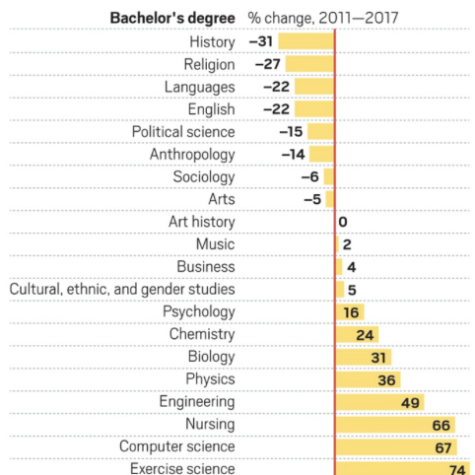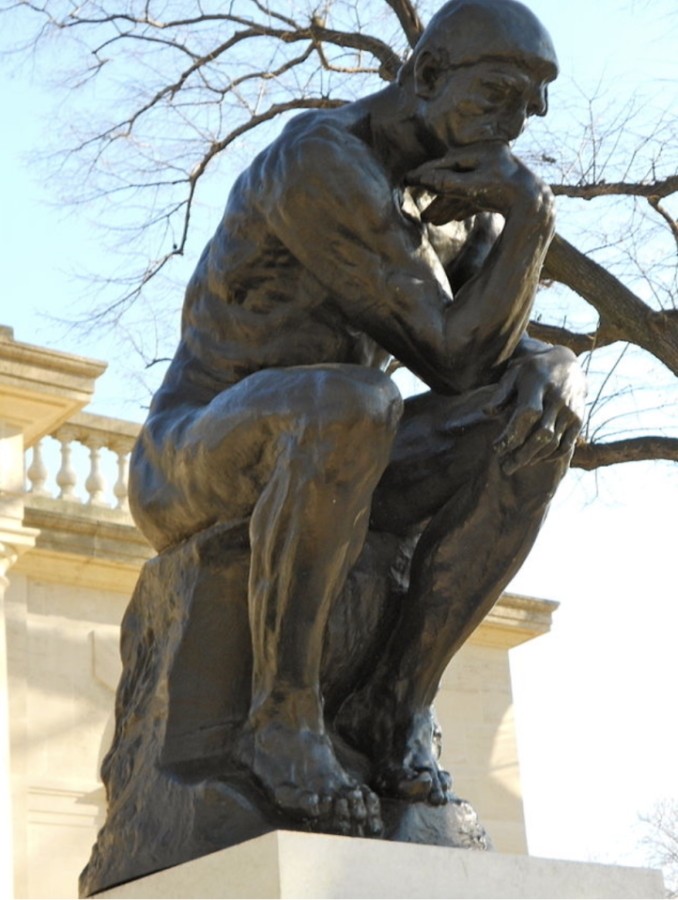The Importance of Humanities in a STEM-Dominated World
April 14, 2023
Whether one likes it or not, the world today is one of technology and innovation. Constantly students are bombarded by parents, schools and friends to take classes, join clubs, study majors and pursue careers that revolve around science, technology, engineering and math, better known as STEM. However, despite the undeniable popularity and relevance of the field, research from scholars around the country warns that studying the humanities, topics including history, art and literature, are still vastly important. These subjects, therefore, do not deserve to be overshadowed by their hard science and math counterparts, for each type of education brings amazingly necessary benefits.
This decline in interest in humanities began in the latter half of the 20th century, but was expedited by the 2008 financial crisis (Mullen). Budget cuts in many schools resulted in classes such as foreign language, fine arts and history being cut from the curriculum. Additionally, in this time of economic uncertainty, many parents pushed their children into career paths that were most profitable directly after graduation. Parents saw little necessity in having classes such as philosophy or anthropology that would be seemingly irrelevant post-graduation. Due to this negative viewpoint, participation in humanities majors in university has dropped by over 10 percent between 2011 and 2017, according to the National Center for Education Statistics. Another study showed that “the number of American students majoring in humanities has fallen from almost 20 percent in the 1960s to less than 5 percent today”(Horgan).

Some scientists, such as Charles Blaich of Wabash College, believe this trend was boosted by the increased specialization in STEM curricula. Increasing the number of science and math courses required before graduation leaves little time for students to explore their interests in the humanities.
Despite this, Professor John Horgan of Stevens Institute of Technology argues that in an age of constant “facts, answers, knowledge and truth”(Horgan), it is more important than ever to study “uncertainty, doubt, and skepticism”(Horgan). He argues that while math and science are built upon research facts, proven theories and complex mathematical equations, humanities courses allow students to ponder unanswerable questions, learn more about the diverse world around them and experience different perspectives. No matter the career path, he argues that subjects such as philosophy, literature, history and foreign languages transverse disciplines, and can provide the critical thinking skills that so many engineers, scientists and mathematicians would benefit from today.
All in all, in this contemporary and constantly changing society, learning about the past, present and future through studying the humanities is more important than ever. These critical subjects that teach empathy, worldliness and unity. While not everyone needs to feel obligated to study these subjects in college, one should feel compelled to open their mind to all knowledge that lives outside the small, yet dominant field of science, technology, engineering and math.































